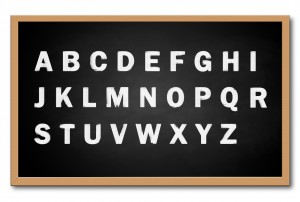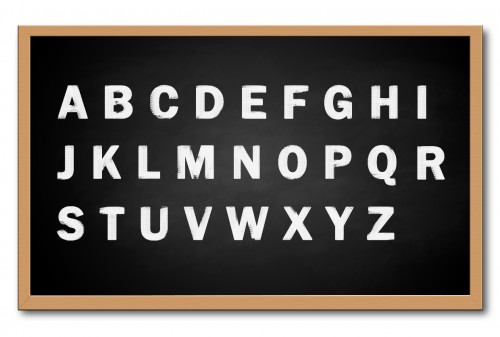 If you’re a stickler for proper punctuation, the Bible’s sentence structures might drive you to distraction. Thankfully, I don’t go to Scripture to learn grammar technique. HOWEVER, I recently found an interesting punctuation lesson in God’s Word…
If you’re a stickler for proper punctuation, the Bible’s sentence structures might drive you to distraction. Thankfully, I don’t go to Scripture to learn grammar technique. HOWEVER, I recently found an interesting punctuation lesson in God’s Word…
Isaiah Said…
In Isaiah’s prophecy of doom for God’s idolatrous people, there came a point when the LORD was moved by compassion. He longed to comfort Israel and promised to restore them after they’d tasted His wrath:
“Speak tenderly to Jerusalem, and proclaim…that she has received from the Lord’s hand double for all her sins. A voice of one calling: ‘In the desert prepare the way for the Lord; make straight in the wilderness a highway for our God.’” Isaiah 40:2,3
John the Baptist Said…
In the New Testament, a man of miraculous birth emerged from the wilderness, wearing camel-hair robes and eating locusts and honey–John the Baptizer. The Apostle John (different John) records an incident when the Jewish religious leaders ask John the Baptist if he is the expected Messiah, the Anointed One. John (Baptist) answers emphatically, “No!” And when asked, “Who are you then?” John B. uses Isaiah’s words as his answer…
“John replied in the words of Isaiah the prophet, ‘I am the voice of one calling in the desert, “Make straight the way for the Lord.”’” John 1:23
Oh, Those Colons and Commas
“A voice of one calling: ‘In the desert prepare the way for the Lord; make straight in the wilderness a highway for our God.’” Isaiah 40:2,3
- ISAIAH–The voice is calling TO the ones in the desert…that they should make the way straight for the Lord.
“‘I am the voice of one calling in the desert, “Make straight the way for the Lord.”’” John 1:23
- JOHN–The voice already emerged FROM the desert and is making the way straight for the Lord.
Read Like A Hebrew
Perhaps only grammar geeks like me notice such small variations in biblical text. And we’ve got to remember–much of the Bible was passed down through oral tradition rather than written record. For millenia, Hebrews sang or recited the biblical stories and prophecies, and when they DID begin recording it, the Hebrew language used no vowels–and no punctuation! So, re-read the sentence without punctuation:
a voice of one calling in the desert make straight the way for the Lord
Are you in the desert, exorting those with you to help prepare for the Lord’s coming? Or are you a voice calling to those in the desert place, shouting encouragement when it’s needed most?
Why Does It Matter?
Ultimately, punctuation is about position and purpose. A well-placed colon and comma helped us determine Isaiah prophesied to those in the desert, and John the Baptist emerged from the desert. Isaiah’s purpose was to encourage after a harsh message, while John B. was commissioned to deliver a harsh message to religious hypocrits. Position and purpose–punctuation’s potent impact.
Today’s Questions:
Here are two practice sentences. Where will you place the comma? What difference does it make in your position and purpose?
- I will serve Jesus.
- I will love Jesus.




Comments 3
Awesome revelation ! Thank you so much.
Awesome revelation !! Thank you so much.
Author
So glad you enjoyed!